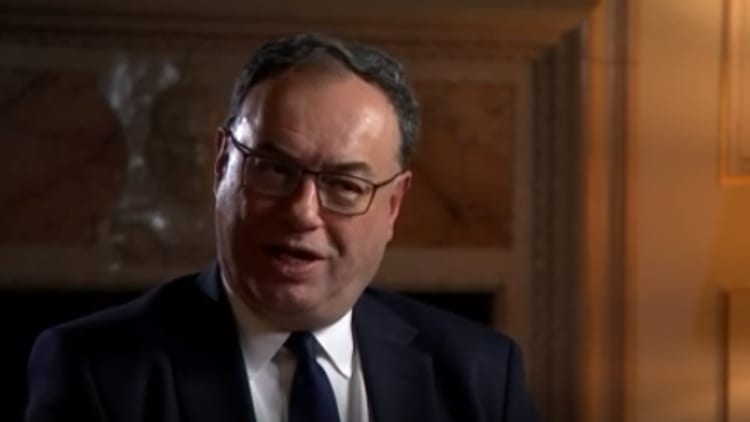UK inflation rate dips for third straight month to hit 10.1%
U.K. inflation data paints a picture of the British economy.
Bloomberg / Contributor / Getty Images
LONDON — The U.K. inflation rate fell for the third month in a row in January to hit 10.1%, below economists’ expectations, but high food and energy prices continued to put the pressure on British households.
Economists polled by Reuters had forecast inflation would drop to 10.3% after the rate fell to 10.5% for December. Inflation has fallen consistently since hitting a 41-year-high of 11.1% in October.
Core CPI, which doesn’t include food, energy, alcohol or tobacco, was 5.3% compared to 5.8% in December, according to the ONS.
The agency said the largest upward contribution came from housing, gas and electricity, food and non-alcoholic beverages, while the biggest price drops were in transport and restaurants and hotels.
While the inflation rate has dropped, it’s important to remember prices aren’t necessarily going to start falling, according to Richard Ollive, senior advisor at financial services firm Wesleyan.
“[Prices] are going to keep rising, just not as quickly. Pressure on budgets will still be painfully tight, especially if people’s pay packets haven’t grown as quickly as their bills,” Ollive said in an analyst note.
Worker pay continues to lag behind inflation, with growth in average total pay at 5.9% among U.K. employees between October and December year-on-year, the ONS reported Tuesday.
Businesses will also continue to feel the effects, according to the Head of Research at the British Chambers of Commerce David Bharier.

“Most small firms remain hammered by rising costs from energy, raw materials, interest rates, taxation, and new trade barriers with Europe,” Bharier said in a research note.
“Businesses are desperate for concrete action in the upcoming Budget across a range of areas. The issues of childcare and energy costs in particular must be solved to help unlock firms’ growth potential and control inflation.”
Inflation rates spiked throughout 2022, largely due to surging energy prices in response to Russia’s invasion of Ukraine impacting oil and gas supplies.
The Bank of England raised interest rates by 50 basis points on Feb. 2 and forecast a “much shallower” recession than previously feared.
The central bank moved its main rate to 4% and anticipated annual CPI inflation would fall to 4% by the end of 2023.
For all the latest World News Click Here
For the latest news and updates, follow us on Google News.

